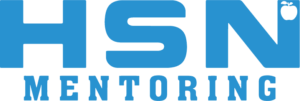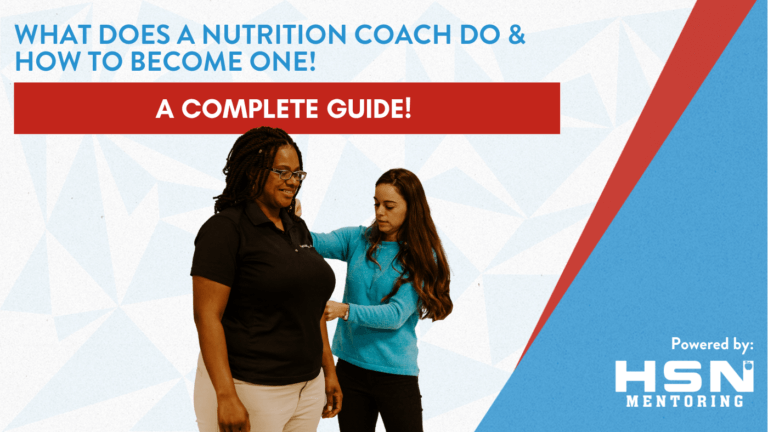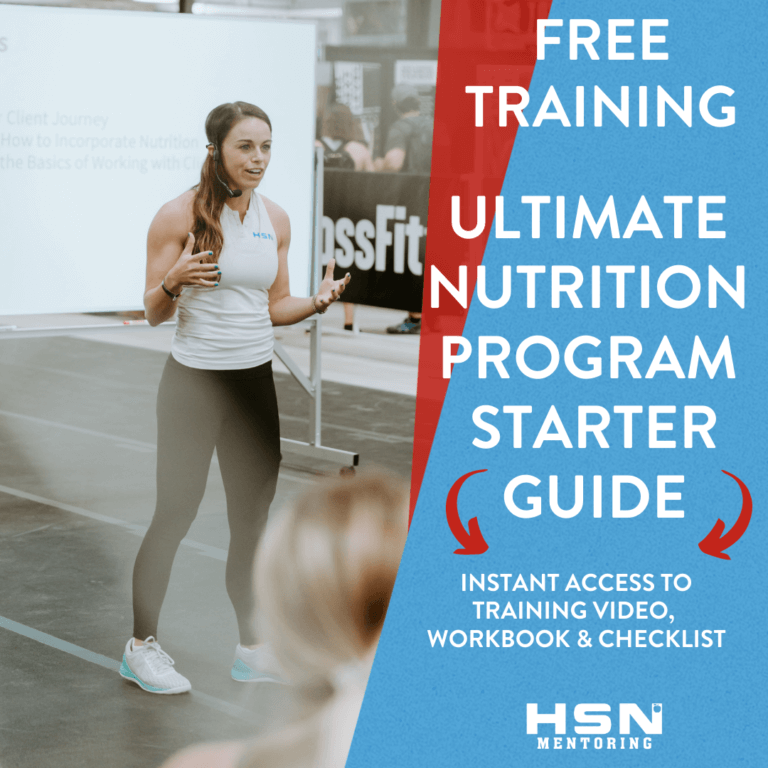When it comes to nutrition and wellness, many people are passionate about helping others achieve their goals. If this sounds like you, then becoming a nutrition coach may be the perfect career for you!
In this guide, we’ll walk you through everything you need to know to make the transition from enthusiast to professional. So whether you’re just starting out or you’re looking to refine your skills, read on! You’ll be on your way to making a difference in people’s lives in no time!
What Is A Nutrition Coach?
A nutrition coach is a health professional who works with individuals and groups to help them achieve their nutrition and wellness goals in hopes to improve their overall health. At the core of a nutrition coach’s practice is an understanding of nutrition and human physiology, as well as a wealth of practical knowledge about nutrition strategies, behavior change techniques, and effective goal setting practices.
Whether working with individual clients or leading group programs, nutrition coaches use these skills to empower their clients to make lasting changes in their nutrition and health. Thanks to their coaching expertise, nutrition coaches are an invaluable resource for anyone seeking to improve their wellness through healthy eating habits and lifestyle changes.
Contrary to most beliefs, nutrition coaching is way more about peoples lifestyle and habits than it is about the actual food and nutrition science. When reviewing the questionnaires from our free intro sessions, most people describe their struggles with nutrition like this…
I don’t have time to cook
Meal times are a mess because I didn’t go to the grocery store
Most of the time I don’t know what to eat
Fast food is so much quicker and easier
Vegetables suck
My whole family eats poorly and they make fun of me if I eat good food
Snacking is a big problem for me, I skip meals but snack all day long because I work at home
Looking at this list confirms our belief that physical and mental health play a role in nutrition. If nutrition coaches can help people with behavior change strategies and building healthy habits, then the actual nutrition part will fall into place. In our mind, nutrition coaching could also be considered a health coach role.
Many of the nutrition coaches we see are also fitness professionals looking to further their ability to help clients lose weight, maintain a healthy diet and avoid chronic disease.
What Types Of People Does A Nutrition Coach See?
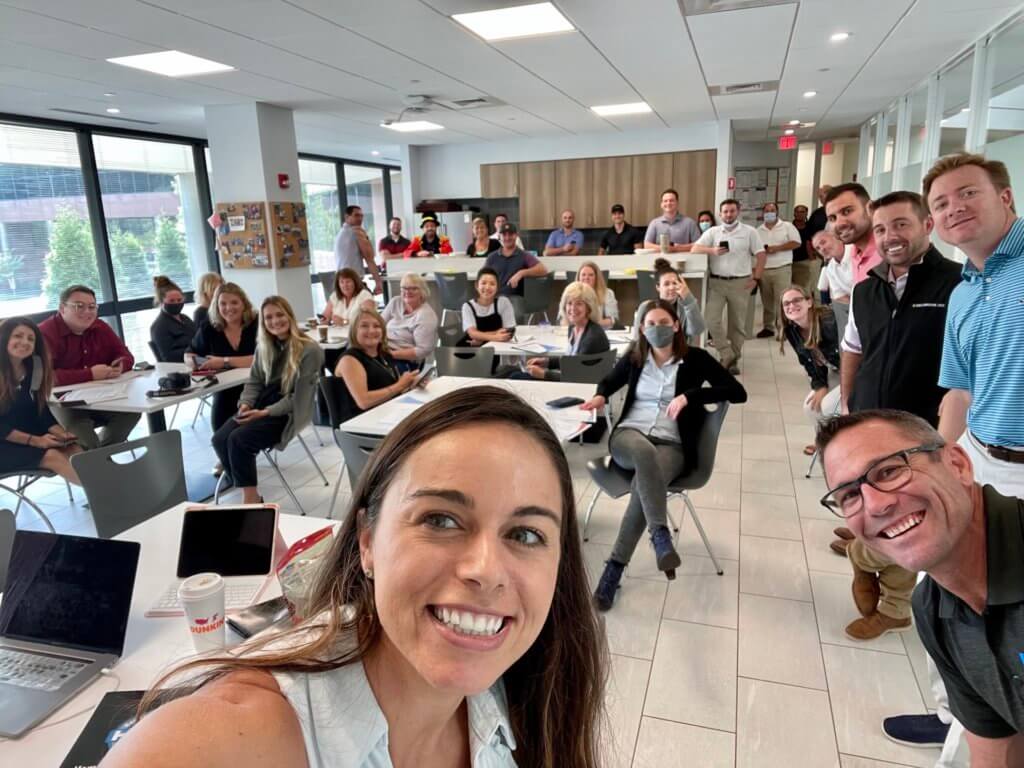
At my gym, our nutrition coaches each have their own special niche. For example, I have one coach that loves to work with clients who don’t eat meat in addition to working with running athletes. She is a vegetarian who has run several long races and Iron Mans.
Our other nutrition coach focuses on stay at home mom’s trying to find the motivation to workout and eat right. These ladies love the fancy gym bags, and cute athletic clothes, but they struggle when it comes time to find the motivation for fitness & food because they are exhausted from taking care of the children.
She also works with people who are looking to live a healthier lifestyle without an athletic goal. A lot of her clients have a ton of money, but are unhappy due to their extremely busy lifestyles and failing health. They have gotten in the habit of eating out, not cooking and making poor food choices when on the run. This has caused their health to decline and although they seem to have everything else going for them, they simply can’t seem to get their nutrition dialed in.
I am also a nutrition coach, and I take clients who have the healthy habits dialed in, but are working on an athletic pursuit such as competing in CrossFit or weightlifting.
My certification from HSN allows me to work with kids and teens. Over the past couple years we have worked with several sports performance athletes who are competitive rowers who have went on to get D1 scholarships. I have also worked with football and volleyball athletes looking to up their game through having a healthier body.
Just because we all have our own niche’s doesn’t mean we are limited by that. The principles we have learned in our training apply to all types of clients. We chose niche’s because those types of people interest us most.
What Does A Nutrition Coach Do?
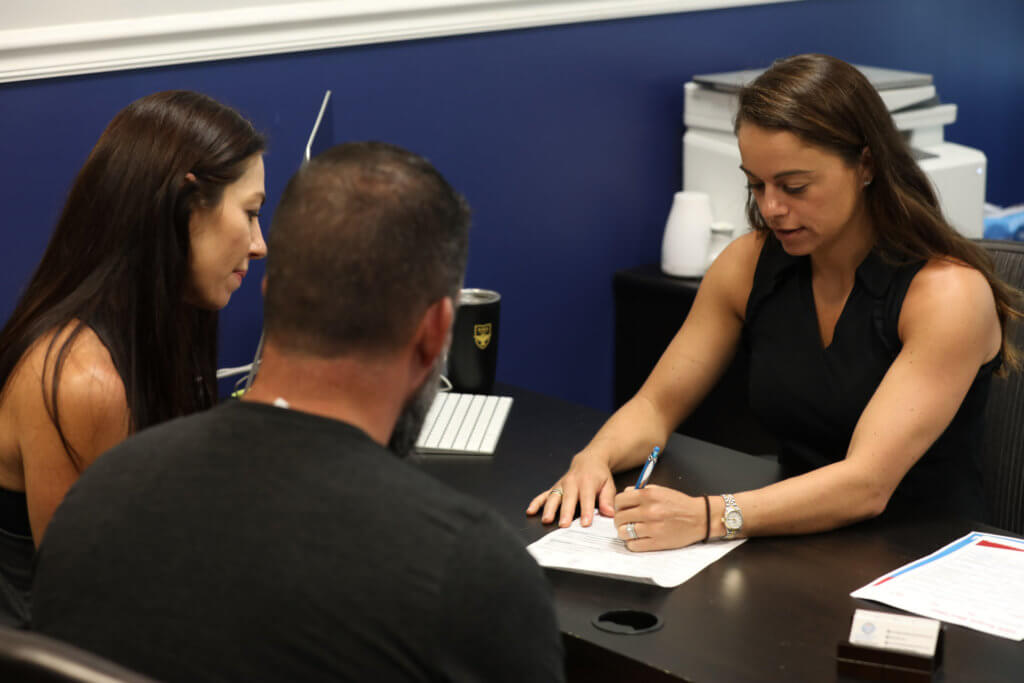
In this section we will highlight what a typical new client journey looks like so readers can get a good picture of what a nutrition coach does from the very first visit to ongoing meetings throughout the client journey.
Step One – The Nutrition Client Initial Consultation
During this consult the nutrition client and coach get to know each other a bit better. Ultimately the goal is to get the client to feel confident in sharing their lifestyle with the coach so that the coach has a thorough understanding of what is going on.
We take biometrics and body measurements – Tracking progress is an extremely important step that we often see missed or skipped over. It’s skipped because the cold hard truth is difficult to stomach sometimes and clients don’t like to see what their weight or body composition is.
That being said, progress is tracked through data, and for that reason – we track the data. In our gym we use an Inbody machine which uses bioelectrical impedance to track lean body mass, fat mass and water mass. From there we take tape measurements.
So many times inches come off faster than pounds so when a client sees success from inches lost, their motivation rises.
In addition to both of these measurement techniques we also take progress pictures. Although clients are very apprehensive about doing this, pictures are also a GREAT way to show progress.
Preferably the client wears the same tighter tank top and bottoms each month for their progress pictures.
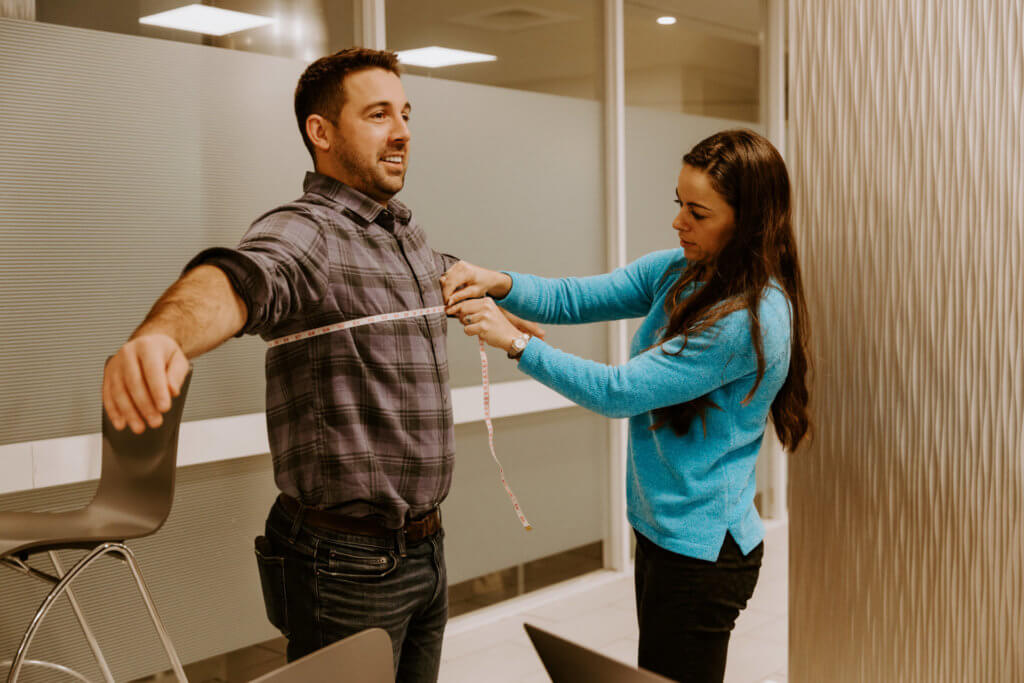
We gather data on current nutrition habits and beliefs – In this initial discussion we ask the clients to divulge what they eat and drink from the time they wake up to the time they go to bed. Finding out this information helps the nutrition coach triage how and what the client needs help with the most.
Additionally we find out if the client has taken part in any types of nutrition programs in the past, tried any fad diets or has any predetermined beliefs regarding nutrition coming into this appointment.
We find out goals and aspirations – During this time we talk about why the client chose to take part in our program. Finding out clients long and short term goals are important. Many times people have unrealistic expectations around how to lose weight, loose fat or gain muscle. Our job with nutrition coaching is to help clients understand what is realistic and what isn’t. Finding out what success looks like to them is an important part of this process in addition to providing them the education necessary to have sustainable results and lasting habits.
Step Two - Building The Nutrition Client Journey & Providing Action Steps To Build Healthy Habits

After the nutrition coach gathers all this information and assesses what the “low hanging fruit” may be, they begin to build a plan of action to help build this healthy lifestyle for the client.
Let say for example, Jane our newest client has a weight loss goal of 55 pounds. She works in the ER 12 hours shifts, skips meals, has two dogs at home and 3 kids. Her husband travels for work and often times she has to pay someone to help her with her kids and dogs when he’s away.
If we were to provide only nutritional guidance like meal plans to Jane in 4 week increments and tell her to grocery shop, meal prep, buy a storage container for her meals at work and drink 80 oz of water per day, do you think Jane would be successful? Probably not.
Instead we will work with Jane to implement one small new habit at a time until it sticks. From there we will add another habit until it sticks and so on until we begin to see success.
Step Three - Provide Support And Ongoing Accountability
Before Jane left we gave her a habit to work on. Our role as the nutrition coach now is to provide support should Jane have any setbacks or questions. We will then monitor how she’s doing in between that initial session and the next check in which is a couple weeks away.
We have an app that clients can ask questions in, post pictures and monitor their assigned habit for the week. You will use whatever platform you decide to go with in your own business.
Each week we will ask Jane…
What went well since we last spoke? What are your bright spots?
Were there challenges that you came across?
Did you feel happy, sad or have another emotion?
Moving forward from each check in we provide support and accountability. An additional habit could be assigned to work on based on the outcome of each check in, or the same habit could continue to be assigned if it hasn’t stuck yet.
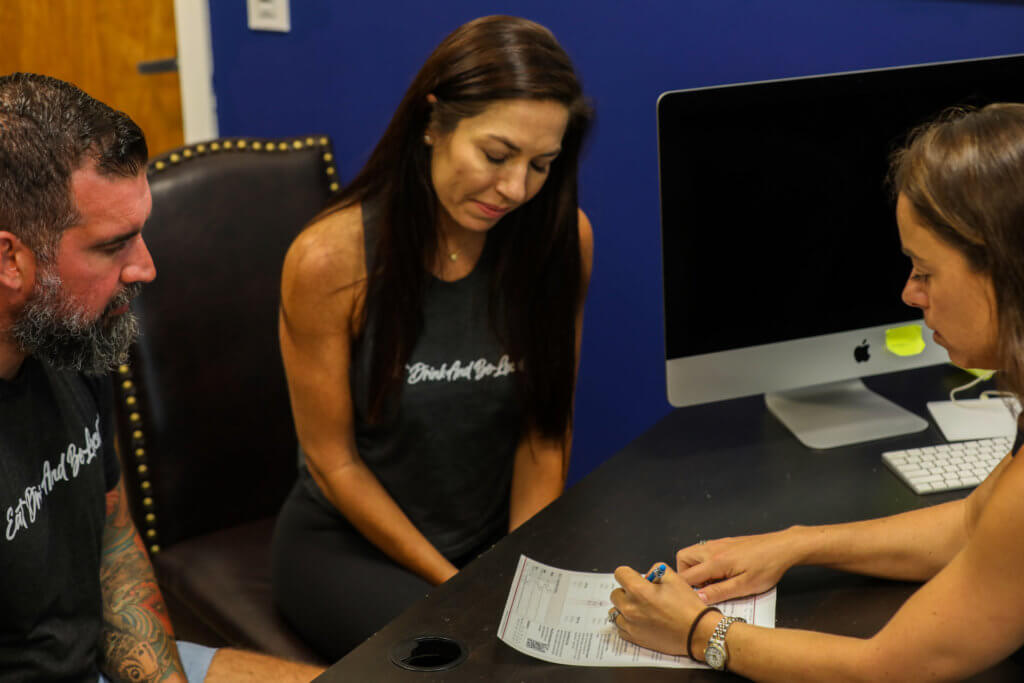
Nutrition coaches will continue to work through this process until the client reaches their goal or ends their relationship with us. It’s important to realize that not all the action steps assigned to clients are related to food and making dietary changes. Many of the action steps are related lifestyle like setting a sleep schedule or getting gas in the car in the morning vs. the afternoon to allow time for a workout.
These simple lifestyle changes allow for less stress thus making nutrition choices just about nutrition.
Lots of fun action steps go into this process as well such as learning new recipes. For example, often times clients struggle with veggies because they are used to the mushy boiled stuff their parents used to make. Sharing fun new ways to cook and make delicious recipes is also part of what a nutrition coach does.
Keeping it simple for success is our moto at Healthy Steps Nutrition and also my gym. Assigning too many action steps, counting macros before habits are formed and requiring complete deprivation of certain food groups all leads to failure.

Registered dietitians under go many years of training in higher education to obtain their RD status. This status allows them to see clients with medical disorders and prescribe food to help them cure their medical issues. These recommendations are called medical nutrition therapy.
Nutrition coaches are not qualified to provide medical nutrition therapy unless they have a Registered Dietitian credential.
Registered Dietitians can become nutrition coaches, and they often times do, but nutrition coaches cannot call themselves a Registered Dietitian unless they have the education and certification behind it.
What Nutrition Coaches Cannot Do
Prescribe food to treat a particular disease or medical condition
Provide meal plans
Diagnose a client with a certain ailment or medical issue
Work with clients who have eating disorders
What Nutrition Coaches Can Do
Provide support to clients who have been told they need to “eat more veggies” or eat less “junk food” by their doctor. Most doctors do not have the time to teach each client they tell to “eat less junk” food what junk food actually is. They may refer them to an R.D. if they are obese enough however often times, if the client isn’t obese enough – they are left with no support to learn how to eat less junk food.
This is where the nutrition coach could make a big impact.
Support clients in breaking down the steps to their own weight loss and health goals.
For example, a client comes to you because they want to lose 10 pounds and gain a ton of muscle. There wasn’t a doctor involved in this and the client has no health issues other than wanting to lose a little weight. Providing the client with a plan to help them reach this goal is something a nutrition coach can help with.
Teach the client to grocery shop
Help overcome habits clients want to change such as eating chips every hour, never drinking water, having dessert after every meal, etc….
Help clients learn how to meal prep
Educate clients on what a carb, a fat and a protein are.
For simplicity – always remember that if you are a nutrition coach without the RD credential, prescribing meal plans or attempting to treat any medical condition with nutrition is not legal. But you can work with a clients healthcare team to be successful in the plan they are prescribing for a client.
We always recommend nutrition coaches check with their state laws when becoming a nutrition coach just to verify what is in scope and what is out of scope. Laws vary by state and it’s always important to make sure you are in compliance.
You can find information on this HERE.
In my state of Iowa, we are required to have an RD credential or be overseen by an RD to make any nutrition suggestions. Lucky for us we are backed by the dietitians at Healthy Steps Nutrition and all of our sources regarding nutrition come from them.
Nutrition Coaching Certifications - Non Advanced Degrees
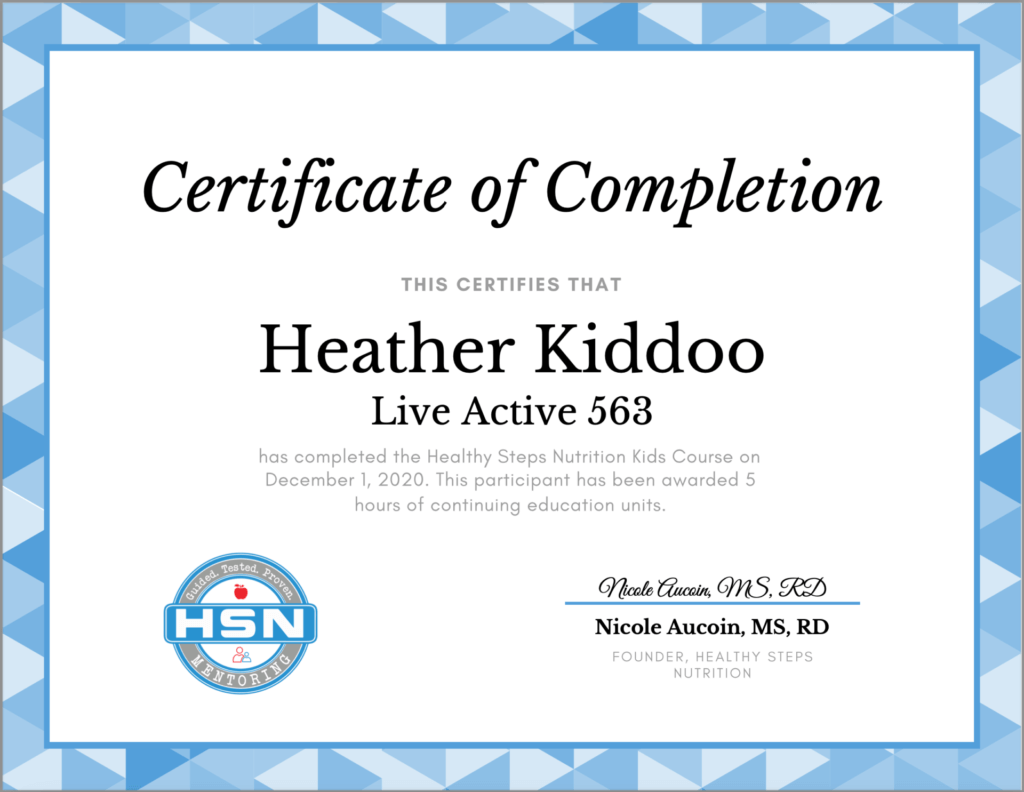
There are so many nutrition coaching certifications available online today. Unless you are going for the R.D. credential, most programs are online with no practical application or evaluation process.
When looking to become a certified nutrition coach I would consider these things:
Look for a certification that teaches you the basic fundamentals of nutrition science
Has a proven track record of successful clients
Teaches nutrition as a piece of the puzzle but also provides training on the “entire person” and their lifestyle such as sleep, stress, exercise, and support systems
Has a practical application component in addition to the online learning
- Also has a coaching evaluation process so the nutrition coach is able to receive feedback about their coaching
Of course I am biased towards the HSN Mentoring Basics Of Nutrition Coaching Certification.
It is the only nutrition certification I know of that offers a mentoring call from an R.D. in addition to 6 weeks of nutrition coaching with a HSN R.D./nutrition coach.
On top of all this, the nutrition coach will receive a formal evaluation from a R.D. on staff at HSN who will give feedback on their coaching given different types of client scenarios.
The practical application and evaluation piece of this certification increases nutrition coach confidence 10 fold!
Future nutrition coaches will actually have the opportunity to meet face to face with an R.D. in field.
Just to be clear – this certification is so different from others on the market because:
- The nutrition coach will be nutrition coached for 6 weeks with an RD or nutrition coach on staff at HSN
- The coach will also have a formal evaluation via zoom with an RD at HSN to go over everything learned in the certification and receive an evaluation on their coaching given certain client scenarios.
Click the button below to learn more and sign up!
Conclusion
Nutrition coaching is a great way to help people improve their general health and avoid our healthcare systems. Just because nutrition coaches cannot provide medical nutritional therapy does not mean they don’t have a place in this field. The exact opposite is true.
If nutrition coaches can keep people from getting chronic disease by developing habits and eating foods that are favorable for long term health then our jobs here are worth their weight in gold.
Frequently Asked Questions
Do Nutrition Coaches Make Money?
Nutrition coaches indeed make money. On average at my gym, nutrition coaches make between $35-$55 per hour. This time is broken up throughout the month but averages around $85-$125 per client per month. Multiply that by the number of clients you would like to see each month and you will get your total monthly salary. Both of our nutrition coaches are also personal trainers so they split their time between the two professions.
How Do Nutrition Coaches Get Clients?
At our facility, clients find us online or through a referral. From there we alternate nutrition coaches every other client. In addition to clients coming through the gym, nutrition coaches often get their own clients from posting on social media and sharing the gyms social media posts.
Independent nutrition coaches get clients through referrals, social media and making them selves present in the community.
Check Out More Resources About Nutrition Coaching
LISTEN: Nutrition Coach Evaluations: Why You Need To Do Them & How To Do It – HERE
READ & WATCH: How South Hall CrossFit Partnered With HSN Mentoring To Build & Implement A Professional Nutrition Coaching Program In Their Gym – HERE
READ & WATCH: 3 Questions To Ask Yourself As A Nutrition Coach – HERE
LISTEN: The #1 Thing To Increase Your Confidence As A Nutrition Coach – HERE
